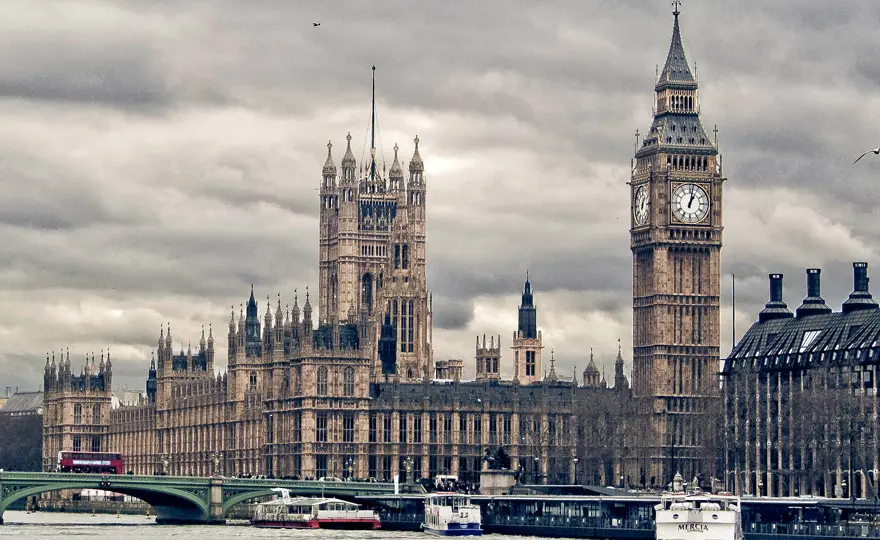ClientEarth Communications
6th September 2023


New legislation that creates uncertainty for decades-old environmental protections in the UK has passed its final hurdle.
Since its introduction last year, lawyers have warned that the Retained EU Law Act could throw the UK into legal chaos and blunt environmental targets – exactly when urgent action is needed most, in the middle of the current climate and biodiversity crises.
Following Brexit, the UK carried over into its domestic law a range of EU-era laws that regulate things like the environment, employment rights and consumer protection. This became known as ‘retained EU law’. To date, almost 5,000 pieces of such legislation have been identified and there’s still a lack of clarity on how much retained EU law is on the UK’s statute books.
After months of criticism, the Government did significantly scale back on the final form of the Act, but fundamental issues remain as hundreds of laws are still set to be binned.
Government ministers have also been granted sweeping powers to amend or revoke retained EU law until the end of June 2026, without any effective oversight from parliament.
The REUL Act poses a number of risks and challenges that are likely to have serious negative impacts across the board in the UK. Here are our top three:
600 laws are set for the chopping block, including those that incorporate into UK law key aspects of regulations for reducing emissions of harmful pollutants.
However, the Government can still change course when it comes to clean air laws - but the window for action is short. We've written to the UK's environmental minister and asked for these regulations to be taken off the 'kill list' and asked UK citizens to write to their MP.
For the remaining retained laws that could be axed over the next three years – it’s unclear how and if they will be upheld. As the act made its way through parliament, the Government refused to guarantee environmental protection standards wouldn’t backslide under REUL and instead insisted they would be protected by existing commitments, like those in the Environment Act. However, the Environment Act does not directly target how ministers may choose to apply the powers they’ve recently acquired through the REUL Act.
In addition, the Government has a poor record when it comes to implementation of the Environment Act 2021 (the flagship piece of ‘post-Brexit’ environmental legislation). It was required by the act to lay before Parliament new targets for air, water and biodiversity protection, but that deadline was missed in October 2022 with the targets not laid until just before Christmas.
Given environmental protections could be uncertain for years to come, the REUL Act leaves the UK in a precarious position. The act risks leaving domestic environmental protections suspended and delayed in a moment of planetary emergency.
Businesses will have to run knowing that rules and regulations by which they operate could change dramatically within the next three years – without knowing how extensive the changes might be or when they might occur.
By allowing ministers to revoke and replace retained law at their discretion and without proper parliamentary oversight, the REUL Act opens up the possibility that less effective regulation will take its place – if anything is replaced at all.
This outcome looks even more likely in light of the ‘regulatory burden’ clause in the act, which states that any regulation introduced to replace retained EU law cannot increase the regulatory burden, which appears to bake-in deregulation and risks removing protections.
That means there will be fewer tools available to the Government to help it achieve its own legally binding goals and targets. This is not only bad for nature and the environment but also opens up the Government to expensive and time-consuming litigation when it fails to accomplish what it has promised to.
A legal analysis issued in February confirmed our concerns: by leaving the process of retaining, replacing or amending EU law entirely to Government ministers, the REUL Act would have serious consequences for the UK’s democracy.
Hosting scrutiny and debate around potential laws is a key function of parliament – a centuries-old function that has been eroded by this act.
Voters, their elected members of Parliament and devolved legislatures would have no say when it comes to laws that have been in place for years or, in some cases, decades.
Now that the REUL Bill has become law, we’ll be monitoring the Government’s use of the extensive powers granted in the Act to ensure environmental protections aren’t eroded.
Despite the best efforts of peers in the House of Lords, the Government refused to adopt measures that would instil environmental protection and ensure proper parliamentary oversight of retained EU law for successive governments to come.
The Government must stick to the assurances it provided during the final stages of the bill’s progression: that environmental protections will not be diminished as a consequence of the REUL Act.